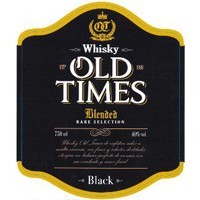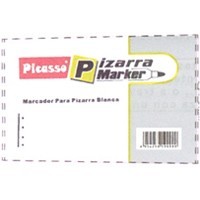Concept of Deceitful Marks in Peruvian Administrative Case Law

Published byClaudia Valdivia

Article 135, paragraph i) of Decision 486, Industrial Property Common Regime, establishes that marks may not be registered as trademarks when they are liable to deceive business circles or the public, in particular as to the geographical origin, nature, manufacturing methods, characteristics or qualities of the goods or services concerned, or their suitability for their purpose.
The marks to which Article 135, paragraph i) of Decision 486 refer, are the so-called deceitful marks.
At present, the Trademark Office, making reference to the prejudicial interpretation of Article 82, paragraph h) of Decision 344 issued by the Court of Justice of the Andean Community in Proceeding 30-IP-96, states that the marks are deceitful when they cause “in consumer mind a distortion of reality regarding the nature of the good or service, its characteristics, origin, manufacturing method, suitability for its purpose or other information that may lead public to error.” (Resolution No. 5805-2018/CSD-INDECOPI of November 6, 2018 issued by the Trademark Office. Page 9).
Previously, the Intellectual Property Specialized Division of the Court of INDECOPI – hereinafter the Division – (second administrative instance) stated that “deceitful marks are those marks that may lead consumers to error regarding the nature, composition, properties, quality price or any other characteristic of the product or service to be distinguished. (…)” (INDECOPI. Case Law Compendium, Intellectual Property Division (1996-1999). Volume I. Page 55).
Thus far, the Division, making reference to the prejudicial interpretation of Article 135, paragraph i) of Decision 486 issued by the Court of Justice of the Andean Community in Proceeding No. 12-IP-96, states that deceitful marks are the denominations capable of creating in consumers the believe that they are acquiring a product or service that offers certain characteristics, quality, utility, purpose or any other factor that does not correspond to the reality of the product or service. For example, the mark IRROMPIBLE to distinguish “chinaware” or the mark ALGOCAM to distinguish “shirts manufactured with synthetic material.” (Resolution No. 755-2019/TPI-INDECOPI of April 29, 2019 issued by the Intellectual Property Specialized Division of the Court of INDECOPI. Page 24).
The concept of deceitful marks has been applied in the following administrative case law issued by the Trademark Office and the Division, in the last years:
- Resolution No. 3576-2016/CSD-INDECOPI of December 28, 2016, issued by the Trademark Office in connection with File No. 587317-2014, which grants the registration of trademark  , to distinguish “alcoholic beverages (except beers)” in class 33, for considering that the applied for mark is not deceitful since in itself it does not contain any information resulting erroneous, nor results from said mark any information leading consumers to error in connection with the product to be distinguished.
, to distinguish “alcoholic beverages (except beers)” in class 33, for considering that the applied for mark is not deceitful since in itself it does not contain any information resulting erroneous, nor results from said mark any information leading consumers to error in connection with the product to be distinguished.
- Resolution No. 0017-2018/TPI-INDECOPI of January 5, 2018, issued by the Division in connection with File No. 587317-2014, which reverses Resolution No. 3576-2016/CSD-INDECOPI and denies the registration of the mark (FIGURA 1) , to distinguish “alcoholic beverages (except beers)” in class 33, for considering that the applied-for mark causes risk of deceit, in connection with the products intended to be registered since “analyzed the applied-for mark, it is noticed that the use of the terms WHISKY and MALTA ESCOCESA in a same phrase, when appreciated by consumers makes them believe that the product which registration is sought comes from SCOTLAND, even when it does not, given the fact that applicant, (…), constitutes a company from Spain, which has not proved that the goods to be distinguished come from Scotland.”
, to distinguish “alcoholic beverages (except beers)” in class 33, for considering that the applied-for mark causes risk of deceit, in connection with the products intended to be registered since “analyzed the applied-for mark, it is noticed that the use of the terms WHISKY and MALTA ESCOCESA in a same phrase, when appreciated by consumers makes them believe that the product which registration is sought comes from SCOTLAND, even when it does not, given the fact that applicant, (…), constitutes a company from Spain, which has not proved that the goods to be distinguished come from Scotland.”
- Resolution No. 985-2018/CSD-INDECOPI of February 23, 2018, issued by the Trademark Office in connection with File No. 720874-2017, which grants the registration of trademark , to distinguish “sauces (condiments)” in class 30, for considering that the denomination LIMA is not deceitful in connection with the product to be distinguished since the denomination LIMA is not capable of transmitting erroneous information with respect to the geographic origin, nature, manufacturing method, characteristics or qualities of the products concerned, or the suitability for their purpose.
- Resolution No. 1876-2018/TPI-INDECOPI of September 6, 2018, issued by the Division in connection with File No. 720874-2017, which confirms the Resolution No. 985-2018/CSD-INDECOPI and grants the registration of the trademark , to distinguish “sauces (condiments)” in class 30, for considering that “being the denomination LIMA an expression that informs about (…) the origin of the product (…), this does not constitute a deceitful designation.”
- Resolution No. 784-2018/CSD-INDECOPI of February 14, 2013, issued by the Trademark Office in connection with File No. 722784-2017, which declares groundless the nullity action, filed against trademark CORDILLLERA AZUL, which distinguishes “meat, fish, poultry and game; preserved, frozen, dried and cooked fruits and vegetables; jellies, jams; compotes; eggs; milk and milk products” in class 29, for considering that the denomination CORDILLERA AZUL is not deceitful with respect to the products it distinguishes, since although it is used to designate a National Park, it does not contain in itself information which results erroneous, nor emerges therefrom an incorrect indication that can deceive the business circles or consumers about their origin, nature, manufacturing method, characteristics, qualities or suitability for their purpose.
- Resolution No. 1972-2018/TPI-INDECOPI of September 14, 2018, issued by the Division in connection with File No. 722784-2017, which confirms Resolution No. 784-2018/CSD-INDECOPI and declares groundless the nullity action filed against trademark CORDILLLERA AZUL, which distinguishes “meat, fish, poultry and game; preserved, frozen, dried and cooked fruits and vegetables; jellies, jams; compotes; eggs; milk and milk products” in class 29, for considering that the denomination CORDILLERA AZUL is not deceitful with respect to the products it distinguishes since “it has not been demonstrated that registered trademark CORDILLERA AZUL (…) can be erroneously associated with Parque Nacional Cordillera Azul and constitutes a deceitful mark.”
- Resolution No. 2244-2018/TPI-INDECOPI of November 05, 2018, issued by the Division in connection with File No. 716330-2017, which for the set out reasons, confirms Resolution No. 2432-2018/CSD-INDECOPI and denies the registration of trademark , to distinguish “Building materials of metal; water-pipe valves of metal, valves of metal for drain pipes, valves of metal for oil [other than parts of machines], valves of metal for petroleum [other than parts of machines], valves of metal for gas [other than parts of machines], valves of metal other than parts of machines; tubes of metal, collars of metal for fastening pipes, clips of metal for cables or pipes, elbows of metal for pipes, couplings of metal for tubing, reels of metal, non-mechanical, for flexible hoses, pipe muffs of metal; couplings of metal for water; check valves of metal [other than parts of machines], ball valves of metal [other than parts of machines], gate valves of metal [other than parts of machines], by-pass valves of metal [other than parts of machines], flanged valves of metal [other than parts of machines], dam valves of metal [other than parts of machines]; globe valves of metal [other than parts of machines]; poppet valves of metal [other than parts of machines]; butterfly valves of metal [other than parts of machines]; swing check valves of metal [other than parts of machines]; spring check valves of metal [other than parts of machines]; foot check valves of metal [other than parts of machines]; mesh check valves of metal [other than parts of machines]; elbow couplings of metal for pipe; T-couplings of metal for pipe; junctions of metal [other than parts of machines]” in class 6, for considering that “consumers could believe that the products intended to be identified with the mark V VIALLI VALVE ITALY and logotype are manufactured in Italy, causing deceit in consumers with respect to the geographical origin of said products.”
- Resolution No. 5805-2018/CSD-INDECOPI of November 06, 2018, issued by the Trademark Office in connection with File No. 740514-2018, which declares groundless the nullity action filed against trademark  , to distinguish “marker, pens, pencils, color pencils” in class 16, for considering that it is not susceptible of deceiving public about the geographic origin, nature, manufacturing method, characteristics or qualities of the products concerned, or their suitability.
, to distinguish “marker, pens, pencils, color pencils” in class 16, for considering that it is not susceptible of deceiving public about the geographic origin, nature, manufacturing method, characteristics or qualities of the products concerned, or their suitability.
- Resolution No. 0755-2019/TPI-INDECOPI of April 09, 2019, issued by the Division, which confirms Resolution No. 5805-2018/CSD-INDECOPI and declares groundless the nullity action filed against trademark  , which distinguishes “markers, pens, pencils, color pencils” in class 16, for considering that “the fact that the trademark distinguishes “pens, pencils and color pencils” does not imply that the denomination MARCADOR PARA PIZARRA BLANCA of the trademark provides incorrect information on the products distinguished by said trademark, to the extent of determining consumer’s purchase decision, so it is not possible to consider that the trademark is deceitful.”
, which distinguishes “markers, pens, pencils, color pencils” in class 16, for considering that “the fact that the trademark distinguishes “pens, pencils and color pencils” does not imply that the denomination MARCADOR PARA PIZARRA BLANCA of the trademark provides incorrect information on the products distinguished by said trademark, to the extent of determining consumer’s purchase decision, so it is not possible to consider that the trademark is deceitful.”
In view of the above-mentioned, it is concluded that for Peruvian case law, deceitful marks are those marks that can make believe consumers that the products of services it distinguishes have certain geographic origin, nature, manufacturing method, characteristics, qualities, suitability for their purpose or any other characteristic that they do not have in reality.
Claudia Valdivia

